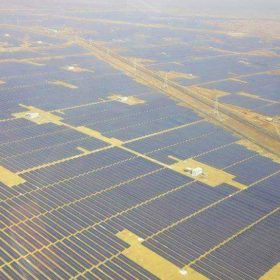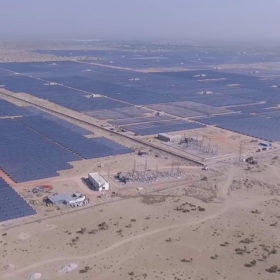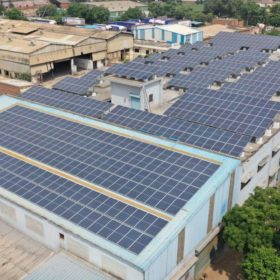Greenko, NTPC sign MoU for round-the-clock power supply
Hyderabad-based RE developer Greenko Energies, which is developing over 40 GWh of pumped hydro storage projects in India, has partnered with NTPC to develop round-the-clock power supply solutions by integrating renewable energy sources and pumped storage.
Malaysia’s Yinson increases stake in India solar plant to 95%
Having acquired a 37.5% stake in March, Yinson has now agreed to buy an additional 57.5% equity interest in Indian independent power producer Rising Sun Energy (RSE) with a cumulative operational capacity of 140 MW (AC) in the Bhadla Solar Park.
Engineering drives next-generation solar power in Southeast Asia—Black & Veatch interview
Mitesh Patel, Renewables Director-Asia, US-headquartered EPC player Black & Veatch, speaks to pv magazine about the key trends driving the solar market, especially in Southeast Asia, and strategies to improve the bankability of PV projects.
Uttarakhand’s Pant University to get a 2.2 MW rooftop solar plant
Bids are invited to install a 2,285 kWp grid-connected rooftop solar system at G.B. Pant University Of Agriculture And Technology. The plant is to be set up under the RESCO model. Ceiling tariff for over 25 years is fixed at Rs 3.5/kWh.
India added just 351 MW of solar capacity in Q2, 42,229 MW in pipeline: Bridge To India
Covid-related disruption hit solar project construction in the second quarter. The activity will likely rebound over the coming quarters, with 4,720 MW expected to be commissioned in the second half.
Manikaran Power, south Korea’s KEPCO join hands to acquire stressed power plants in India
The New Delhi-headquartered power trading company has signed a Memorandum of Understanding with the South Korean power plant maintenance specialist to acquire and revive stressed assets in the power sector.
Odisha invites EoI for Konark solarization
Manufacturers and integrators of solar-based drinking water kiosks, solar trees, solar street lighting systems, and e-rickshaw charging infrastructure can submit their interest by August 29.
Modi loosens the purse strings to help struggling state utilities
Covid-19 hits to demand and bill payment collection have worsened the plight of the nation’s already debt-crippled power distribution companies, prompting the government to order an exceptional relaxation of lending limits.
India could add 2.5 GW of big solar in second half
Some 1 GW of utility scale project capacity was added to the end of June.
Financing in rooftop solar
There is a need to innovate and pay attention to micro, small and medium enterprises (MSMEs), SMEs, and residential society consumers to activate the next leg of growth in the rooftop solar market.













